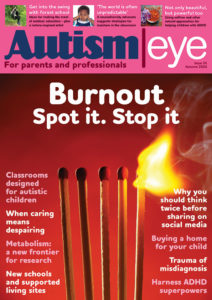Autism rates in the US have rocketed to nearly one in 30, new research reveals.
Scientists at China’s Guangdong Pharmaceutical University found rates have risen from one in 40 in 2016.

Autism rates are soaring in the US. Photo by Caleb Woods on Unsplash
Researchers led by Dr Wenhan Yang used 2019/20 data from the US National Health Interview Survey. It included 12,554 children, ranging from ages three to 17.
The US National Health Interview Survey collects information through household interviews.
It includes details that a parent or guardian reports of autism diagnosed by a doctor or other health professional.
UK comparison
In the UK, research by Cambridge, Newcastle and Maastricht universities found in March 2021 that autism rates have risen to around one in 57.
That is almost double the figure the National Autistic Society quotes of one in 100 in the UK.
The Cambridge and Newcastle researchers pointed to better recognition to explain the rise.
But the biomedical charity Thinking Autism disputes this.
The charity questions how parents or professionals in the past would have missed “children who are unable to communicate, whose lives are ruled by repetitive or self-injurious behaviours”.
In a statement, the charity said the better recognition theory “does nothing to explain or alleviate the plight of children who are severely impacted by autism”.
Family income ‘a driver of autism’
In the Chinese study, family income was one of the biggest drivers of autism.
Children from poorer backgrounds were twice as likely to have a diagnosis.
One in 20 children had a diagnosis for families with the lowest incomes.
But for the most affluent families, the figure dropped to one in 40.
And in line with previous findings, boys were almost three times more likely than girls to have a diagnosis.
Overall, black children were the most likely to have a diagnosis, with the numbers hitting one in 27.
The Chinese researchers published their findings in JAMA Paediatrics online.
Related:
- Autism traits ‘increase with age’
- Autism found to lower risk of cancer
- Strategy focuses on diagnosis, training
Published: 3 August 2022
















